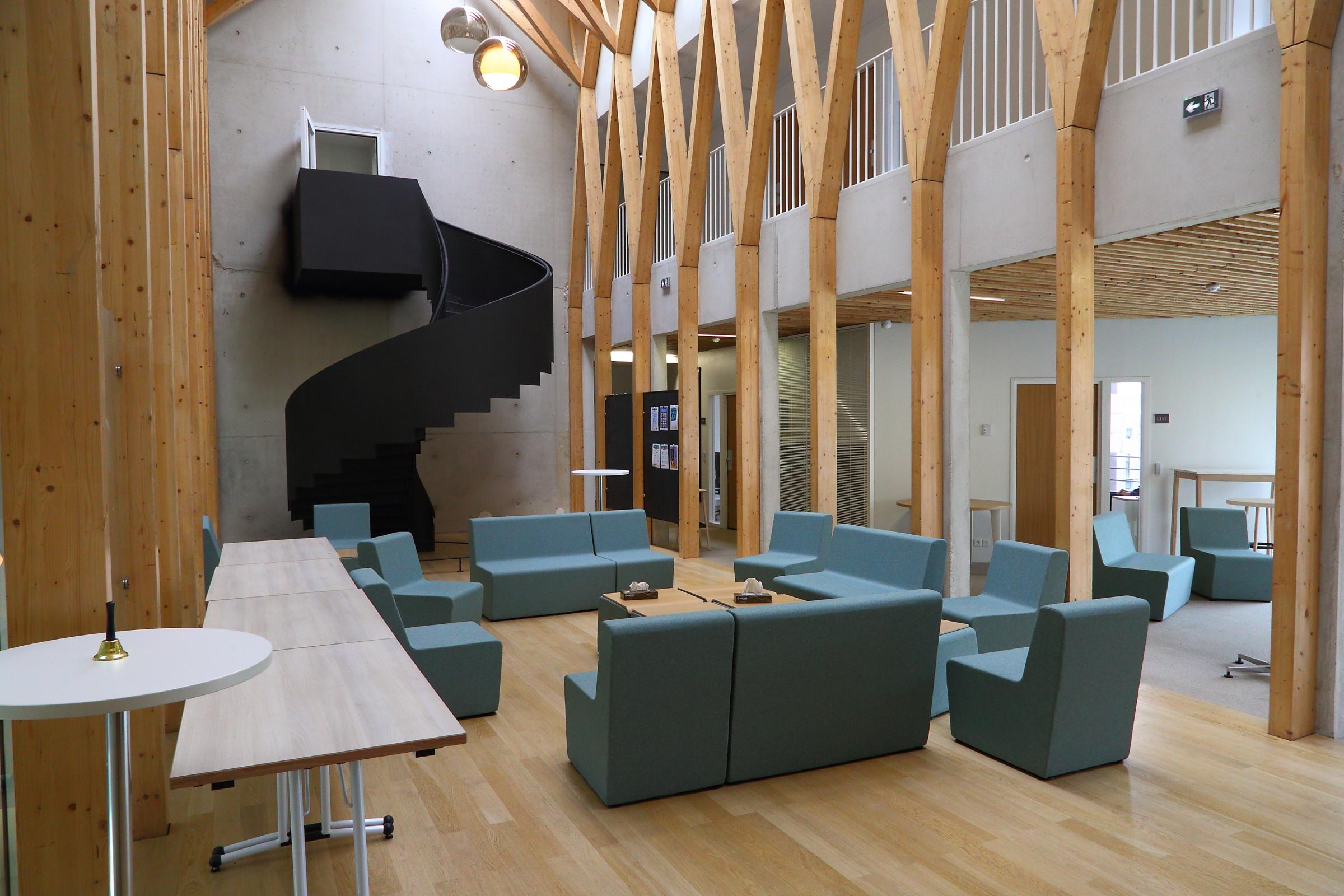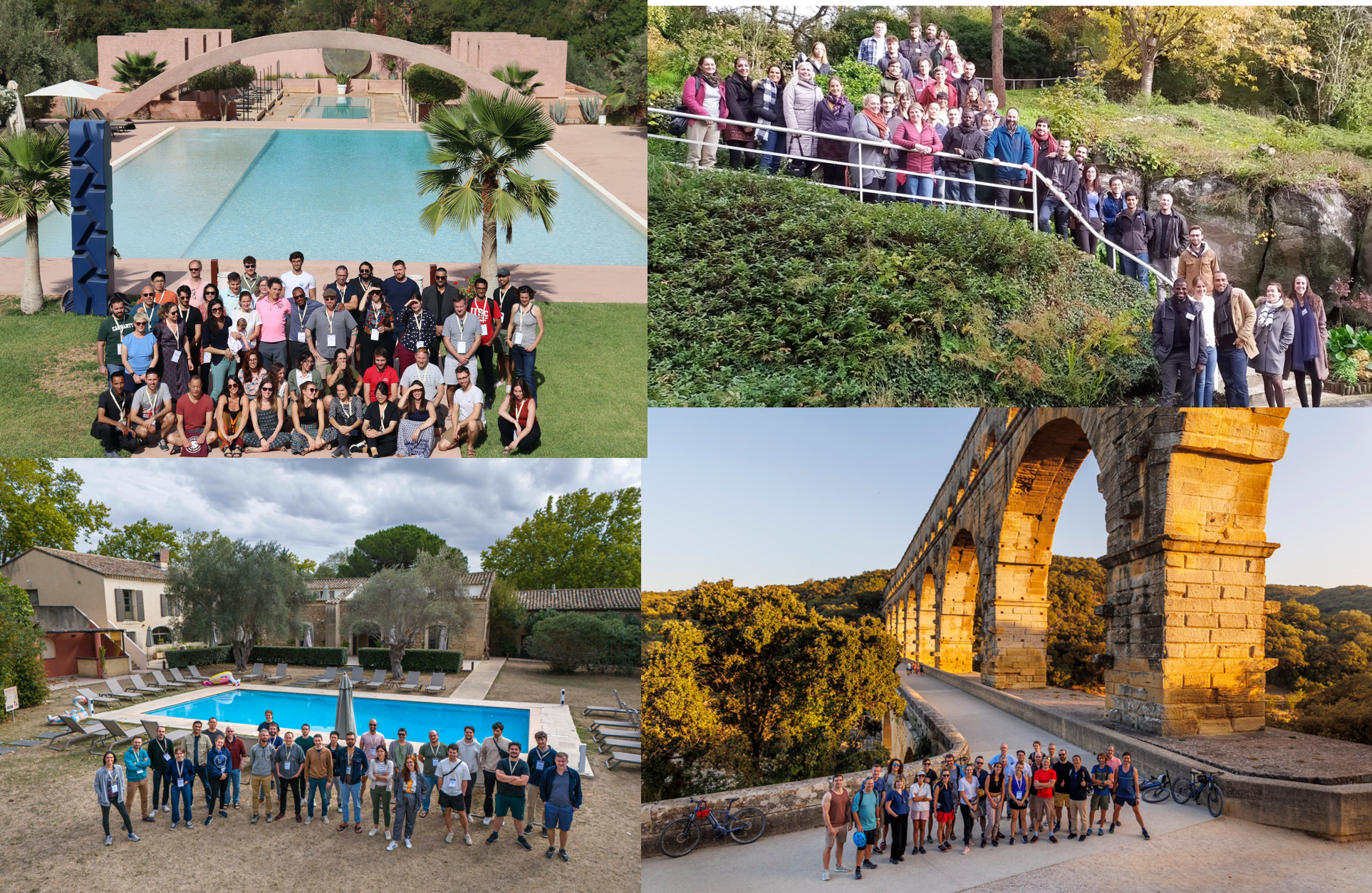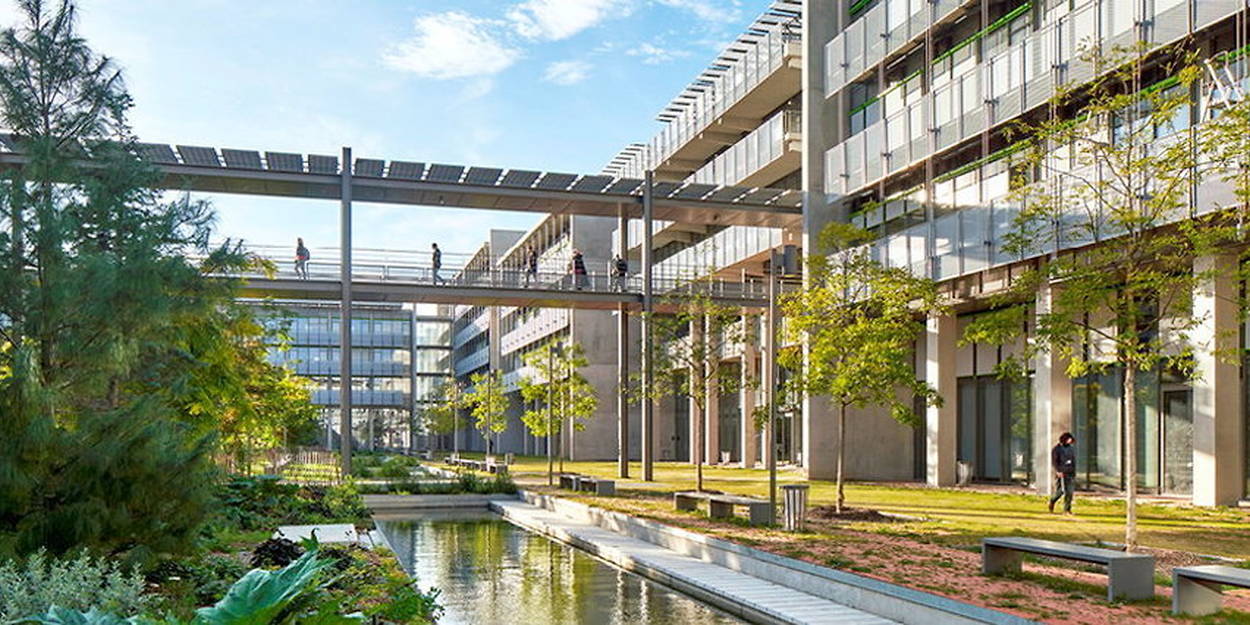From Sept. 30 to Oct. 18 2024, we will host our 4th workshop, in Saclay near Paris:
InvaPact II !
After Saint-Rémi-lès-Chevreuses, Marrakesh, and Avignon, we invite you to work with us at the University of Paris Saclay, the first European university, near Paris, France. Prepare to be so appalled by the gloomy whether and stark surrounding that you’ll have no choice but to immerse yourself in data mining and data analyses.
In the framework of the AXA Research Fund Chair of Invasion Biology, at the University of Paris Saclay, we are excited to announce the creation of the second international workshop on the ecological impacts of biological invasions. After InvaCost I, InvaCost II and InvaPact I, the theme of this fourth international workshop is to apply a standardized metrics of impacts (one that was devised during InvaPact I) to any type of biological invasion and any type of invaded ecosystem.
We are seeking candidates to join us with their own expertise in order to apply our method and quantify the impacts of invasions across species, regions, time and space. If you work on freshwater fish and want to compare their ecological impacts in lakes and in rivers, if you work in Australia and want to synthesize the impact of mammals there, if you work on ants and want to compare their impact in the China and in South Africa, or if you have any other similar idea, then this workshop should help you do just that. You should have good quantitative skills (for your analyses), but mostly a corpus of relevant studies (published papers as pdf) so that we can mine them and grind them in our magical machine (we’ll show you our tricks) and you can have nice data coming right out of it.
The workshop will last three weeks, and you can apply to stay with us during one, two or the whole three weeks. The workshop will be held at the Institut Pascal of the University Paris Saclay, where all the amenities will be at our disposal. The Institut Pascal can host around 60 working guests that will occupy 9 single offices, 17 shared offices and 4 collaboration rooms organised around large meeting areas. All the office spaces contain a computer screen and have Wi-Fi and LAN internet access. The Institute is equipped with photocopy machines, a kitchenette, coffee machines, a microwave and a refrigerator. The Institut Pascal also has a library, a reception hall, two amphitheatres and a shower facility.
 The Institut Pascal is an awesome place to work in. You’ll be productive there Probably more so than in your current office
The Institut Pascal is an awesome place to work in. You’ll be productive there Probably more so than in your current office
Like our three previous ones, this workshop will have an unusual setting. It will set the scene for a strong international collaborative network that is both very productive and very friendly. Most of our early participants have published quite a lot with our project, and many have now found a permanent position. InvaPact II will be held in the context of the finalization of InvaPact, the first global, comprehensive database on published ecological impacts of biological invasions. InvaPact is a new program, born from the experience of Invacost, on the economic costs of biological invasions. For information on InvaCost, please see our dedicated website, but in short, that project that has taken years to design, develop and complete led to a global database on the economic costs of biological invasions and now includes over 13,500 standardized costs from thousands of published materials with information on 65 variables, from country and species concerned, to type of costs and sector of activity. Following the first InvaCost workshop in November 2019, we have published over 70 studies to analyses those costs with a group of collaborators that has now passed the 150 experts. We would like now to duplicate this collaborative success on a more ambitious topic, the ecological impacts of biological invasions.
During the last workshop in Avignon, in October 2023, about 50 experts met to attempt to design a single, unified metric to quantify the various types of ecological impacts of biological invasions, from native species loss to increased flammability, from abiotic habitat modification, to disease spread or ecosystem functioning alteration. We now have designed this metric, and all that remains is to apply it to your various topics so that you can obtain a quantification of any single invasion of any species in any ecosystem, but also compile and compare these impacts, across invaders, habitats, impact time, regions or many other dimensions.
For this, we need to go through the tedious phase of extracting these data from published studies, which we will do together at the workshop (unless you come with that part already done, which will allow us to analyse the data together, and even start writing papers). With the data from all collaborators, we will likely reach rapidly large amount of data, collated into an InvaPact database, that we will exploit fully: in addition to your specific or regional studies, you will be able to participate to larger studies on the collective data.
This three-week workshop will be devoted to working on different studies, most of which we hope to define beforehand; these will be of two categories. The first type will be original work focused on important, novel questions on the ecological impacts of invasions, such as how to best implement multi-dimensional extrapolation of impacts from data that are very fragmented. Several such studies are programmed. The second type of papers will be more descriptive, and focused on providing synthetic, quantitative analyses on various aspects of biological invasions. It could be about the total impacts of invasions in Vietnam, or any other region; about the impacts of all invasions in mangroves, or on islands, or on any other habitat; the comparison of impacts of aquatic plants in marine vs freshwater ecosystems, or any other ecosystem; the impacts of invasive trees, invasive crabs, or any other taxonomic group. It could be any other descriptive analyses of a given dimension of biological invasions, provided the data is available in InvaPact (i.e., published, so that we can transformed it into a quantity with our metric). For an example of the type of papers this descriptive category could take, please see our publications on the economic costs in InvaCost, here.
 The setting will certainly not be as fancy as the previous locations, but you’ll become part of a great scientific network that is set to change the scale of research on invasion biology
The setting will certainly not be as fancy as the previous locations, but you’ll become part of a great scientific network that is set to change the scale of research on invasion biology
As for the three others, we would like to prioritize invitation of early career researchers for this workshop and the associated papers. Ideally, we will invite PhD Students, Postdocs or recent PIs that have started specializing on one aspect, and entrust them with the associated paper design, analyses and writing up, in collaboration with our group. Because we can’t host everybody, we will base our selection of candidates on both the question asked and the proposal to tackle it (probably also on perceived motivation and skills). However, the first criteria will be the willingness of the applicants to collect data prior to the workshop. Selected participants will be expected to have these data ready by the start of the workshop. The registration and occupation of the facilities of the Institut Pascal will be covered by us for all. Participants will need, however, to cover their travel, meal and accommodation costs. We will cover one diner and one happy hour per week. We secured a small grant in order to facilitate the stay of early career researchers from countries with typically less research grants. For these lucky few, all will be covered. Please specify if you need to be considered for that in your application (see below).
At this time, we would like you to:
- Think whether you are interested in joining us, and if so, contact us
- Think of colleagues, especially ECR, who might be interested, and if so, contact them
- Forward, share, tweet & retweet this announcement to your social networks so that we can have the best, most diverse group
For people interested in joining us, please just say so as a first step (email franck.courchamp[at]cnrs.fr), together with a few words about your area of expertise and likely contribution, and we will get back to you with more formal enquiries when we have a better idea of the pool of interested colleagues.

University Paris Saclay is super nice, but not as nice This is the architect view. We can’t even guarantee the blue sky…
Looking forward to welcome you (or your student/postdoc) in France!
This Workshop is sponsored by the AXA Research Fund (Invasion Biology Chair of the University Paris Saclay) and the Institut Pascal. We are grateful to them!


